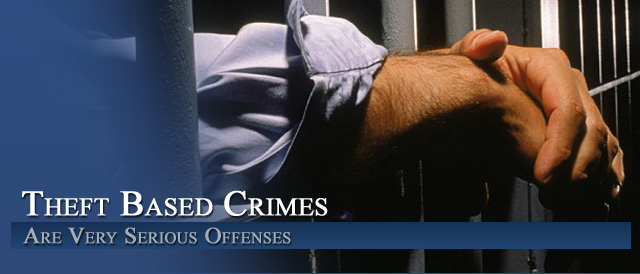




Understanding Colorado Theft Crimes Against At Risk Adults And Juveniles – 18-6.5-103
By H. Michael Steinberg Colorado Theft Crimes Criminal Defense Lawyer Attorney
 Understanding Colorado Theft Crimes Against At Risk Adults And Juveniles – 18-6.5-103 – Charges of theft against an at risk adult are being filed more and more often in Colorado. These charges are very serious and the threshold for being charged very easy to meet. A misunderstanding between a parent or relative over whether an exchange of money was a loan or a gift can quickly result in an arrest and the following charge:
Understanding Colorado Theft Crimes Against At Risk Adults And Juveniles – 18-6.5-103 – Charges of theft against an at risk adult are being filed more and more often in Colorado. These charges are very serious and the threshold for being charged very easy to meet. A misunderstanding between a parent or relative over whether an exchange of money was a loan or a gift can quickly result in an arrest and the following charge:
“A person commits criminal exploitation of an at-risk elder person when he or she uses deception, harassment, intimidation, or undue influence to permanently or knowingly deprive … the use, benefit, or possession of any thing of value.”
Theft from an at risk elder person is a class 3 felony when the value of the thing is just $500 or more 18-6.5-103
A person 70 or older is an “at-risk” elder in Colorado.
While there is no specific statute called defined as “elder abuse” in Colorado, Colorado Revised 18-6.5-103 is a comprehensive law that addresses many of the most serious crimes that can be charged when an at risk victim is involved.
C.R.S. 18-6.5-103 does not establish new crimes – however it does enhance the potential punishments available to the courts and also provides for “special” procedures that are only applicable in the prosecution of crimes against at-risk victims …which can make the defense of these cases more difficult than other Colorado criminal cases.
There are seven basic categories of at risk crimes in this law – They are:
- Criminal negligence — 18-6.5-103(2), C.R.S.
- Assault — 18-6.5-103(3), C.R.S.
- Robbery — 18-6.5-103(4), C.R.S.
- Theft — 18-6.5-103(5), C.R.S.
- Caretaker neglect — 18-6.5-103(6), C.R.S.
- Sexual assault — 18-6.5-103(7), C.R.S.
- Exploitation — 18-6.5-103(7.5) C.R.S.
(The law, in it’s entirety is printed at the end of this article.)
This article addresses the most common form of criminal charge for elder abuse – financial abuse.
Financial abuse or “exploitation” of an at risk victim means the illegal or unauthorized use of a person’s property, money, pension, or other valuables. These cases are often complex and can include such difficult issues as whether a will was altered voluntarily.
Loved ones who, prior to these accusations, were considered only the most supportive and loving of family members – can quickly be accused on acting with “deception, coercion, misrepresentation, undue influence” to obtain a benefit over the ones they love and care about.
While other forms of abuse such as:
- Physical abuse
- Psychological/emotional abuse
- Sexual abuse
- Neglect
…clearly exist, financial abuse focuses on and includes the deprivation of money or other property is the most common criminal charge involving the elderly in Colorado.
Why The State’s Case Against You For Theft From An At Risk Victim May Be Difficult To Prosecute
Criminal cases are founded on the premise that proof beyond a reasonable doubt is will be clear to the finder of fact – usually the jury. A strong case means strong and clearly incriminating evidence. The difficulty for prosecutors in trying financial crimes involving elderly victims often centers on the capacity of an alleged victim to – for example – consent to transactions. These cases may also include an ambiguous and ever changing history of gifting and support to the alleged perpetrator.
Key questions that help to focus the defense in these cases are:
- Was the exchange of money a gift or a loan?
- Who is behind the accusation?
- Why is the accusation being made now?
- What is the credibility and what are the possible motives of the person alleging the abuse?
- Is the person making the accusation motivated to stop the abuse for the protection of the alleged or is the reporting party interested in taking over control of the alleged victim’s finances for their own selfish reasons?
The “capacity” of the alleged victim and the allegation of so called “undue influence” are most often the most critical factors in determining the outcome of these cases.
Defending Theft Or Exploitation Of The Elderly – First, Locate Possible Witnesses Who Can Testify For The Defense
Some Steps To Take Before Unfair Charges Of Financial Abuse Of The Elderly Are Filed
If capacity is a key issue, and it is, then locating key witnesses who can describe the alleged victim’s condition, their activities, and their level of functioning is equally key to the defense of these cases.
Witnesses such as the following, should be located and interviewed as soon as practicable when it appears as if charges are being investigated or have already been filed:
- Family and friends
- Acquaintances – social
- Banking – “financial people”
- Medical providers (there may be privacy or HIPPA issues here)
- Hair stylists – beauticians or barbers
- Faith community people
- Local business people who interact with the alleged victim.
- Neighbors
- Adult day care services (if this applies)
- Social services (such as “Meals on Wheels” and the like)
Defending Theft Or Exploitation Of The Elderly – Second, Obtain All Records That Can Be Used To Prove That The Allegations Do NOT Amount To Theft From The At Risk Adult
Locate any and all:
- Financial records
- Credit card records Investment account records
- Credit reports
- Bank records
- Alleged victims bank records
- All checkbook registers
- “Powers of attorney?”
- Prior civil cases?
- Court or protection orders?
- Wills and trusts?
- Property deeds?
- Conveyances?
Defending Theft Or Exploitation Of The Elderly – Third, Locate Any Experts Who Can Assist In Analyzing The Case And – Or Testifying At Trial
Experts such as:
- Handwriting analysts
- Geriatricians
- Forensic accountants
- Geriatric psychologists and psychiatrists
….can help interpret complex financial records, medical records and the alleged victim’s state of mind.
A Close Look At Colorado’s “At Risk” Criminal Statute – 18-6.5-103
As noted, Section 103 of Article 6.5 of Title 18 is the Colorado law that focuses on wrongs against at-risk victims.
There are many “special victims” identified and protected by harsher criminal laws in Colorado. Among them are crimes against an at-risk adults or at-risk juveniles. Because these victims are clearly less able to protect themselves the Colorado state legislature has enhanced the penalties for crimes committed against them as compared to the same crimes committed against other citizens of Colorado . C.R.S. 18-6.5-101.
Almost all of the most serious crimes committed against at risk adults or juveniles are identified in 18-6.5-101 – to include:
criminally negligent homicide,
first degree assault,
second degree assault,
third degree assault,
robbery,
financial exploitation
sexual assault,
sexual assault on a child,
or sexual assault on a client by a psychotherapist
…..are increased by one level of felony when committed against an at-risk victim.
Defending Against At Risk Charges Includes Understanding Certain Evidenciary Rules That Favor The Prosecution
“Special” rules of evidence apply at a trial of a person charged with crimes against at risk adults and juveniles:
Videotaped Depositions May Be Allowed
Depositions are typically not allowed in Colorado criminal cases however under C.R.S. 18-6.5-103. videotaped deposition of an at-risk victim. Thereafter, if the victim is unavailable pursuant to Colorado Rule of Evidence 804(a), the videotape may be admitted at trial.
Rules Of Confidentiality And Statutory Privileges Are Lifted
Another Colorado statute – C.R.S. 18-6.5-104 “lifts” certain otherwise protective statutory privileges that would prevent certain witnesses from testifying against the accused based on confidentiality. These include:
- Spousal privilege
- Attorney-client privilege
- Clergy-parishioner privilege
- Physician-patient privilege
- Psychologist-patient privilege
These witnesses, individuals who the accused can normally rely upon for confidentialty can now testify for the prosecution for a crime committed against an at-risk victim.
Colorado Trials Against At Risk Victims Are Given Speedy Trial Priority
C.R.S. 18-6.5-105 speeds up cases involving at risk persons. This priority makes certain that trials involving at risk victims are set for trial and are heard before other cases set for trial on the Court’s docket.
While the Colorado State Legislature may attempt to provide advantages to the prosecution in the advantages discussed above, Colorado at risk criminal cases are very difficult for the State to win
and Defendants charged with these crimes should launch a vigorous defense at every stage of the case
What follows is a reprint of the law as of 2017:
§ 18-6.5-103. Crimes Against At-risk Persons – Classifications
(1) Crimes against at-risk persons are as prescribed in this section.
(2) Any person whose conduct amounts to criminal negligence, as defined in section 18-1-501(3), commits:
(a) A class 4 felony if such negligence results in the death of an at-risk person;
(b) A class 5 felony if such negligence results in serious bodily injury to an at-risk person; and
(c) A class 6 felony if such negligence results in bodily injury to an at-risk person.
(3) (a) Any person who commits a crime of assault in the first degree, as such crime is described in section 18-3-202, and the victim is an at-risk person, commits a class 4 felony if the circumstances described in section 18-3-202(2) (a) are present and a class 2 felony if such circumstances are not present.
(b) Any person who commits a crime of assault in the second degree, as such crime is described in section 18-3-203, and the victim is an at-risk person, commits a class 5 felony if the circumstances described in section 18-3-203(2) (a) are present and a class 3 felony if such circumstances are not present.
(c) Any person who commits a crime of assault in the third degree, as such crime is described in section 18-3-204, and the victim is an at-risk person, commits a class 6 felony.
(4) Any person who commits robbery, as such crime is described in section 18-4-301(1), and the victim is an at-risk person, commits a class 3 felony. If the offender is convicted of robbery of an at-risk person, the court shall sentence the defendant to the department of corrections for at least the presumptive sentence under section 18-1.3-401(1).
(5) Any person who commits theft, and commits any element or portion of the offense in the presence of the victim, as such crime is described in section 18-4-401(1), and the victim is an at-risk person, or who commits theft against an at-risk person while acting in a position of trust, whether or not in the presence of the victim, or who commits theft against an at-risk person knowing the victim is an at-risk person, whether in the presence of the victim or not, commits a class 5 felony if the value of the thing involved is less than five hundred dollars or a class 3 felony if the value of the thing involved is five hundred dollars or more.
Theft from the person of an at-risk person by means other than the use of force, threat, or intimidation is a class 4 felony without regard to the value of the thing taken.
(6) Any person who knowingly commits caretaker neglect against an at-risk person or knowingly acts in a manner likely to be injurious to the physical or mental welfare of an at-risk person commits a class 1 misdemeanor.
(7) (a) Any person who commits a crime of sexual assault, as such crime is described in section 18-3-402, sexual assault in the first degree, as such crime was described in section 18-3-402, as it existed prior to July 1, 2000, and the victim is an at-risk person, commits a class 2 felony.
(b) Any person who commits a crime of sexual assault in the second degree, as such crime was described in section 18-3-403, as it existed prior to July 1, 2000, and the victim is an at-risk person, commits a class 3 felony.
(c) Any person who commits unlawful sexual contact, as such crime is described in section 18-3-404, or sexual assault in the third degree, as such crime was described in section 18-3-404, as it existed prior to July 1, 2000, and the victim is an at-risk person, commits a class 6 felony; except that the person commits a class 3 felony if the person compels the victim to submit by use of such force, intimidation, or threat as specified in section 18-3-402(4) (a), (4) (b), or (4) (c), or if the actor engages in the conduct described in section 18-3-404(1) (g) or (1.5).
(d) Any person who commits sexual assault on a child, as such crime is described in section 18-3-405, and the victim is an at-risk juvenile, commits a class 3 felony; except that, if the circumstances described in section 18-3-405(2) (a), (2) (b), (2) (c), or (2) (d) are present, the person commits a class 2 felony.
(e) Any person who commits sexual assault on a child by one in a position of trust, as such crime is described in section 18-3-405.3, and the victim is an at-risk juvenile, commits a class 2 felony if the victim is less than fifteen years of age or a class 3 felony if the victim is fifteen years of age or older but less than eighteen years of age.
(f) Any person who commits sexual assault on a client by a psychotherapist, as such crime is described in section 18-3-405.5, and the victim is an at-risk person, commits a class 3 felony if the circumstances described in section 18-3-405.5(1) exist or a class 6 felony if such circumstances are not present.
(7.5) (a) A person commits criminal exploitation of an at-risk person when he or she knowingly uses deception, harassment, intimidation, or undue influence to permanently or temporarily deprive an at-risk person of the use, benefit, or possession of any thing of value.
(b) Criminal exploitation of an at-risk person is a class 3 felony if the thing of value is five hundred dollars or greater. Criminal exploitation of an at-risk person is a class 5 felony if the thing of value is less than five hundred dollars.
Understanding Colorado Theft Crimes Against At Risk Adults And Juveniles – 18-6.5-103
If you found any of the information I have provided on this web page article helpful please click my Plus+1 or the Share buttons for Twitter and Facebook below so that others may also find it.
The reader is admonished that Colorado criminal law, like criminal law in every state and at the Federal level, changes constantly. The article appearing above was accurate at the time it was drafted but it cannot account for changes occurring after it was uploaded.
If, after reading this article, you have questions about your case and would like to consider retaining our law firm, we invite you to contact us at the Steinberg Colorado Criminal Defense Law Firm – 303-627-7777.
Never stop fighting – never stop believing in yourself and your right to due process of law. You will not be alone in court, H. Michael will be at your side every step of the way – advocating for justice and the best possible result in your case. H. Michael Steinberg is passionate about criminal defense. His extensive knowledge and experience of Colorado Criminal Law gives him the edge you need to properly handle your case
 ABOUT THE AUTHOR: H. Michael Steinberg – Email The Author at:
ABOUT THE AUTHOR: H. Michael Steinberg – Email The Author at:
A Denver Colorado Criminal Defense Lawyer – or call his office at 303-627-7777 during business hours – or call his cell if you cannot wait and need his immediate assistance – please call 720-220-2277.
“A good criminal defense lawyer is someone who devotes themselves to their client’s case from beginning to end, always realizing that this case is the most important thing in that client’s life.”
You should be careful to make a responsible choice in selecting a Colorado Criminal Defense Lawyer. We encourage you to “vet” our firm. Over the last 40 plus years – by focusing ONLY on Colorado criminal law – H. Michael has had the necessary time to commit to the task of constantly updating himself on nearly every area of criminal law, to include Colorado criminal law and procedure and trial and courtroom practice. H. Michael works hard to get his clients the best possible results in and out of the courtroom. He has written, and continues to write, extensively on Colorado criminal law and he hopes this article helps you in some small way -Understanding Colorado Theft Crimes Against At Risk Adults And Juveniles – 18-6.5-103.

Other Articles of Interest:
- Understanding The Colorado Laws Of Embezzlement, Theft and Larceny Part I of II
- Colorado At Risk Sentencing Enhancers – When The Alleged Victim Has Special Victim Status Under Colorado Criminal Law
- Colorado Expands Mandatory Reporting Law To Cover The Elderly In 2014
- Colorado Theft Crimes Defenses – Strategies To Defend Against Theft Charges – 18-4-401
- Colorado Expedited Sealing Law – 24-72-702.5 – Unexpected Delays In Certain Cases












